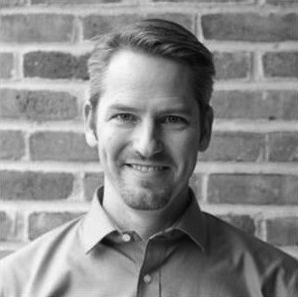by Dan Sartor
In April of 2016, Shared Hope International will host its first JuST Faith Summit in Orlando, rallying faith communities to join the mission to eradicate sex trafficking. As a person of faith I see great potential for diverse individuals from an array of backgrounds—geographic, cultural, socioeconomic, and religious—unifying to address what is arguably the greatest social, economic, and moral scourge of our nation and our world. Once we see the pervasiveness and power of the sex trafficking industry, especially the role and impact of pornography in this industry, we see that the very fabric of society, locally and globally, is at stake. Will we acknowledge each human body and soul as sacred and worthy of honor? Once we learn the tactics of this industry and come to see the lives of the enslaved, we see that it is the most vulnerable of our world who are victimized: our children.
There is a passage from the Christian Scriptures that states, “Religion that is pure and undefiled before God, the Father, is this: to visit orphans and widows in their affliction…” (James 1:27, English Standard Version). Many trafficking victims currently are, or have been, children who were sexually abused, traversed through the foster care system, and/or fled from abusive home environments. In all the ways that matter most, these children lacked a parent who was sufficiently proximate, protective, safe, and loving.
Traffickers systematically target, groom, coerce, and then psychologically and physically enslave their young victims with traumatizing tactics which are strikingly similar to torture and war crimes. As they emerge into adulthood, the history of repetitive interpersonal trauma twists their psychological and neurological functioning. As a result, their abilities to regulate emotions, to rationally problem solve, to manage behavioral impulses, to trust, to maintain healthy relationships, and to engage in moral reasoning can become notably more challenging. As a psychologist, I see these issues manifest in post-traumatic disorders, mood disorders, anxiety, personality disorders, addictions, eating disorders, dissociative disorders, and medical conditions—many of which simultaneously exist in a single DMST victim.
Pimps regularly fashion the identity of their victims as “wives,” who in reality are the most afflicted of all widows, despairing of hope to ever know the life-giving, self-sacrificing love of another. Their world instills beliefs that they are mere objects of abuse, denigration, and abandonment. Not seeing any other reality, victims may participate in the systematic recruitment, grooming, and traumatization of new victims. Sadly, the victims often become perpetrators: victimize others or be victimized.
Yet hope lies in our sharing together in this mission of love. Love brings justice. Love restores. And love is the best prevention. In the absence of love, children are susceptible. In the absence of love, sexual addicts fuel demand for DMST in empty attempts to fulfill their spiritual and relational needs. Who better to build loving individuals, families, and societies than communities of genuine faith? To visit orphans and widows will lead us to love them!
To hear more from Dan Sartor, join us on April 20-22 in Orlando, Florida at the JuST Faith Summit!
About Dan Sartor

Dan is the Director of Counseling Services at Trinity Christian College in Palos Heights, IL. He holds an academic appointment as an Associate Professor of Psychology at the college and is also an adjunct faculty member at Richmont Graduate University in Atlanta, GA. Dan trained as a generalist in Clinical Psychology; his clinical specializations include trauma recovery, addiction recovery, sexuality issues, and crisis of faith/spiritual issues. He has taught numerous graduate-level psychology and counseling courses and is an active member of the Christian Association for Psychological Studies and the American Psychological Association. He remains passionate about the work of soul care and its long-standing history in the Church. His personal mission is to facilitate spiritual vitality and relational restoration through teaching, counseling, writing, and personal encounters in the lives of individuals, families, and communities. Dan completed his undergraduate work at Moody Bible Institute, where he studied music and theology. He then earned his M.A. and Ph.D. in Clinical Psychology at Rosemead School of Psychology, Biola University in Los Angeles and a M.A. in Counseling from Reformed Theological Seminary in Orlando, FL. Prior to joining Trinity Christian College, Dan was a core faculty member for three years at Richmont Graduate University (RGU) in Atlanta, GA, following years of private practice and teaching graduate level courses. Before entering the field of mental health, he served in general pastoral and worship-leading roles as a Presbyterian minister. From this context he pursued training in counseling and psychology to better encourage and care for those who struggle through life’s greatest challenges and deepest sorrows. Dan and his wife, Robin, have four children who span the ages—and many activities—of middle school and high school. He enjoys camping with his family, reading, music, and home improvement projects.






